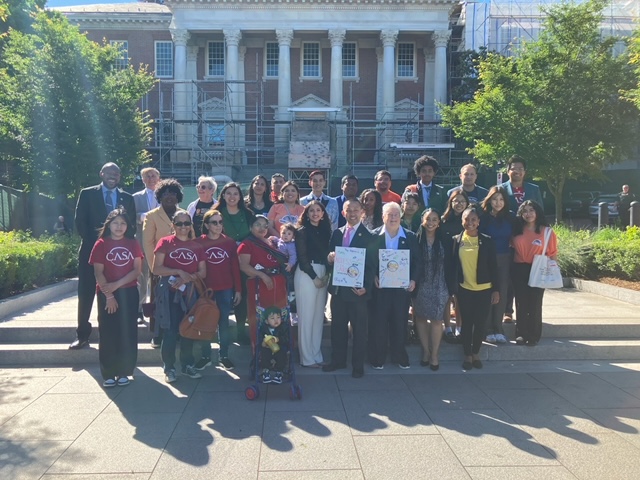Washington’s Top News
Nick Lannelli
July 7, 2017
WASHINGTON — A group representing manufacturers of generic prescription drugs filed a federal lawsuit against Maryland Thursday, trying to stop the state’s new “price gouging” law from taking effect.
The Association for Accessible Medicines filed the suit in U.S. District Court, calling the measure “an unconstitutional overreach.”
“Rather than allow the vibrant competition in the generic drug marketplace to continue working for patients, Maryland would become the first state to reject generic competition in favor of more government regulation,” said AAM’s CEO Chip Davis.
Under the law, which is set to take effect in October, Maryland’s attorney general would have the power to bring civil actions against manufacturers of off-patent or generic drugs that make “unconscionable” price increases.
“When a drug company doubles or triples or multiplies by 50 the price of medication, it imperils the health and finances of patients and their families, and it threatens public health,” said Maryland Attorney General Brian Frosh, who championed the measure.
The attorney general would be able to request additional information from the corporations that instituted the price increases to help determine if price gouging has occurred.
Manufacturers could face a fine of up to $10,000 per violation.
“The new law will give Maryland a necessary tool to combat unjustified and extreme prices for medicines that have long been on the market and that are essential to our health and well-being,” Frosh said.
In its lawsuit, AAM argued that the law will create instability in the market for generic drugs and provide an incentive for decreased competition.
“If this new law goes into effect, it will harm patients and our communities by reducing choice and limiting access to essential medicines that people need,” Davis said.
The group also claimed that the law protects “high-priced brand name drug companies” by only applying to generic alternatives.
In May, Maryland Governor Larry Hogan cited similar concerns and allowed the measure to become law without his signature.
Last modified: July 11, 2017


